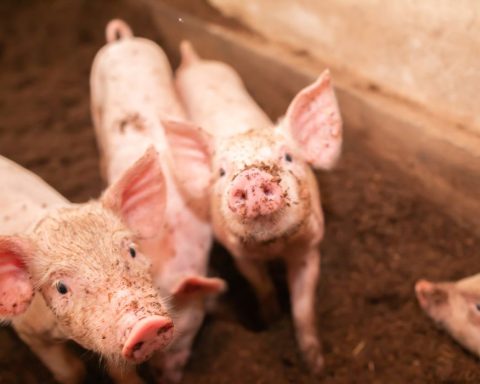Circa 2012: Hurricane Sandy causes an estimated $100 billion in damages in the U.S. Northeast. The International Energy Agency reports that four to six degrees Celsius warming is anticipated by the century’s end. Atmospheric carbon dioxide levels rise to a record concentration of 394 parts per million. Arctic sea-ice volume decreases to the lowest point on record – a planetary state previously predicted to arrive after 2050.
It’s all happening faster than the most extreme predictions. “It’s not just a wake-up call, it’s a wake-up scream,” Cynthia Rosenzweig, a senior research scientist at the NASA Goddard Institute for Space Studies, reportedly said of Hurricane Sandy.
As a consequence, New York City and other at-risk metropolises are preparing a more robust response to the next super storm. But just as important is how to effectively engage all citizens in the kinds of behaviours that will help them reduce and adapt to the certain impacts of climate change. What methods are most likely to work?
The answer may surprise you: rewards and incentives; social contagion, and gamification – bringing gaming concepts of motivation and engagement into daily life.
Individually or in combination, these approaches tap into our human desire to play games, compete, cooperate – and be infected by other people’s pro-social behaviour. From spurring energy conservation to waste reduction and more, these tactics may yield meaningful opportunities to respond to climate change, especially as international negotiations to reduce atmospheric greenhouse-gas levels betray many people’s hopes for a better future.
And best of all, they’re practical. At a cash-strapped time, for relatively low cost, consumers can be motivated to adapt to shifting realities through incremental changes to awareness and behaviour.
This was Andreas Souvaliotis’ goal in 2007, when he started Green Rewards, the loyalty program that later became Air Miles for Social Change (AMSC) after being acquired by LoyaltyOne, operator of the popular Air Miles program in Canada.
AMSC works with utilities, public transit providers and assorted government agencies seeking cost-effective ways to “incentivize” energy conservation, greater use of public transit, and healthier lifestyle choices.
Its secret weapon is a combination of reach and reward. Air Miles, which through an extensive network of partners provides loyalty points for certain retail purchases, has direct access to more than 70 per cent of Canadian households, making it the largest loyalty program of its kind in North America. Its points are redeemable for an array of sustainable products.
By piggybacking on that reach and using much sought after Air Miles points as the carrot, AMSC has educated and engaged a significant portion of the population. One successful energy-conservation campaign attracted 120,000 more participants than a traditional advertising-and-rebate approach, representing an increase of 600 per cent. At the same time, it saved the government agency behind it 66 per cent in taxpayer dollars.
“If we’re looking for solutions with a true and measurable impact on the human species’ overall footprint, then we must realize that all seven billion of us are consumers,” says Souvaliotis. For the beasts of consumption that we are, incentives work – whether the goal is to get people to drive less and use more transit, or recycle more and conserve electricity.
Souvaliotis is now evolving the approach in “a number of other markets beyond Canada” through newly founded Social Change Rewards, which states on its website that it can “consistently demonstrate dramatic improvements in marketing efficiency, effectiveness, and overall program cost.”
Meanwhile, Friendefi, a start-up based in Montreal, Quebec, is on track to bring the rewards-and-incentives concept to the world’s social networks. The idea is to plug existing loyalty programs into social networks such as Facebook, then use the lure of rewards to stimulate online competition and cooperation through customized games. Friendefi’s co-founder Aaron Carr concedes it’s difficult to get people to break old habits and adopt new ones. “People are so busy that taking a few steps off the day-to-day path is really challenging.”
To ease the load, Friendefi aims to break down big problems into a menu of “gamified” day-to-day actions that translate to a larger impact on the whole. “We need immediate, bite-sized programs that prevent people from getting scared and tuning out,” says Carr. “For example, we could put value on specific actions, such as not idling your car. People would measure and track their actions, gain 50 points here and 100 points there, and see a cumulative impact (over time).”
Rewarding healthy and environmentally beneficial behaviours, of course, is just one approach. Some companies, such as Arlington, Virginia-based Opower and Quinzee of Toronto, Ontario, are harnessing our innate desire to compete with and emulate neighbours and friends. Their goal: to make energy conservation contagious. Faizal Karmali, co-founder of Quinzee, wants smart energy use to spread among “people like you or near you” – that is, within social networks and among neighbours.
Opower, which recently integrated social-comparison features into its service, works with 75 utilities on three continents to educate consumers about their energy use. Partnerships with Facebook and the Natural Resources Defense Council have helped expand Opower’s reach to 15 million homes, which so far have reduced electricity consumption by 1.7 terawatt-hours – roughly what a small coal-fired power plant generates in a year.
A key challenge, according to Karmali, is that there’s been no way for individuals and communities to know what’s normal in terms of energy consumption, and whether their personal energy usage would be viewed as excessive or, conversely, super-efficient. “Socializing consumption provides people with points of reference,” he says. As consumers gain insight into their own energy-consumption patterns, “Quinzee alerts customers when they’re beating their peers, or falling behind them, which seems to motivate sustained, better behaviour.”
Using Quinzee, individuals and their peers can influence the social network contagiously – and save money. “People seem to really care how they’re doing compared to others and we use this social dynamic for environmental good,” Karmali says. “One of our friends in the suburbs was using as much energy as a couple in our peer group with two kids. He was really embarrassed when we mentioned it over dinner one night, and has since reduced his energy use by about 25 per cent.”
The social-contagion aspect of Opower and Quinzee may be especially significant. As reported in Science Daily, a joint study by Yale University and New York University found that “people are more likely to install a solar panel on their home if their neighbours have one.” The study found that with just 10 installations in a given zip code, the probability of adoption rises by 7.8 per cent. A solar panel that’s visible to neighbours, combined with a homeowner who expresses enthusiasm about saving money, may lead to additional installations. A social contagion “bump” could apply equally to other low-carbon, energy-saving goods such as electric cars.
But let’s not forget the power of fun. Asi Burak, co-president of not-for-profit Games for Change, based in New York City, is convinced that positive social and environmental impacts can come through digital games. Burak believes there are solid reasons why games and gamification hold long-term promise for helping spur the kinds of progressive behaviours that can help us, for example, adapt to or mitigate climate change.
The digital games industry has heft, and games are a proven way to engage people. “Call of Duty on a console can sell 20 million units. There are 100 million players for some Facebook games,” he says. “Americans spend 407 million hours every month playing online games, which offer continuous daily engagement.
Americans spend the most time on social networks. Number two is online games.”
In his view, it makes no sense to leave such a dominant, interactive medium just for shoot-’em-up, thrill-seeking entertainment. Burak says his daughter spends more hours playing games in her life than many other activities. “But if 100 per cent of her play is going to be entertainment, it won’t teach her how to prepare for this world in a meaningful way.”
Admittedly, online games that do just that are niche offerings. They include ElectroCity, which teaches young players in New Zealand about managing urban energy, sustainability and the environment; and computer-based strategy game Fate of the World: Tipping Point, which challenges players to “solve” the climate crisis. Such games, as designed and available today, seem a long way from holding the attention of the masses.
“There will be a tipping point when a game for social change is a blockbuster game,” says Burak. “It took movies time to develop the independent documentary voice, for example, and games will take longer because they’re more complex, are evolving so fast, and look so different.”
Jesper Juul, a New York University games researcher at the NYU Game Center, weighs in. “I haven’t seen many good climate change-related games. One problem we have in that category is there’s a green button or a red button, something that’s bad or good [which is inherently uninteresting].”
One missing ingredient in the creation of good interactive experiences – the kind that will reach large-enough audiences to effect positive change – may be a lack of widespread, open and accessible data on everything from individuals’ travel patterns and energy consumption to social behaviours.
Norman White, clinical professor of information sciences at the NYU Stern School of Business, says big data clusters are needed to bring together large data sets across silos, so that interesting patterns can emerge about, say, how taxi rides and climate data intersect. “There’s a whole new group called data scientists,” he says. “These are specialized computer scientists who apply statistics to computer data, and we need them to find better ways to put together climate data, social network data, financial data, and so on.”
All this, White muses, may yield interesting, scalable opportunities for game development or gamification on top of open, rich and compelling data. Until then, catch a positive social contagion, seek out rewards for your good behaviour, and look ahead to the 2013 launch of SimCity 5, which promises to feature greenest-city competitions among other climate change-related themes.







